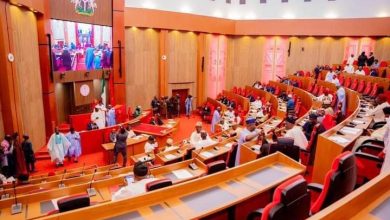Nigeria: How To Perfect Your Title On A Property In Nigeria

Unlike other basic transactions involving goods, the ownership of a property does not automatically vest in the purchaser after paying the agreed consideration and signing the dotted lines of the Deed of Assignment or such other instrument of transfer. Whether it is an outright purchase or inheritance (via a will) or a mortgage or a gift or purchase in furtherance of a court order, there is more to be done to register one’s interest and have a solid legal title in the name of the new owner, else the title remains inchoate. This process of registering one’s legal interest in a landed property is commonly referred to as “perfection/ registration” of title.
The process of perfecting one’s title is initiated at the Land Registry/ Land Bureau of every state and is concluded once the Governor’ gives his consent on the Title Document. It’s a 3-phase process that involves obtaining the Governor’s consent, stamping, and registration of the Title. The consent of the Governor is critically important to the process by virtue of the existing laws and the Land tenure system, the ownership, management, and control of all the Land within the state vests in the Governor, in a trust capacity.
READ ALSO: Oyo State Government Initiates Comprehensive Database for Entrepreneurs and Artisans
However, because you cannot build something on nothing, there must exist a good root of the title for the new title sought to be registered. The conditions to be satisfied for a document to be a good root of title are as follows2
1. It must transfer both the legal and equitable interest in the property
2. It must clearly describe the property and extent of interest being conveyed
3. It must clearly state the owner of the property
4. It must not be subject to any higher interest over the property
5. Nothing on the face of the title should cast doubt on its authenticity
Once any of the above-described conditions is wanting, then there will be a need to regularize the same before proceeding with the transaction. On the one hand, it is not uncommon in Nigeria that a landowner may want to sell a property without any documentation at all. A diligent purchaser will understand that this will hamper the registration of his own title and also factor in this cost of regularizing the current landowner’s title in the negotiations for the purchase price so that there is the necessary legal foundation to build his title on. In addition, a diligent purchaser will even ensure that the specific size of the property is captured on a survey plan duly lodged at the Surveyor General’s office. On the other hand, if the seller of a property is in the process of perfecting the title to the property, the buyer of the property can proceed to place a caution at the Lands Registry. This caution indicates that there is an interest on the property (though inchoate) and no sale of the land, sub-lease, or mortgage can be made without the consent of the cautioner/purchaser.
A. DOCUMENTS NEEDED FOR PERFECTION
A number of documents are needed for the perfection of a title. Upon the drafting, review, and execution of the necessary documents by both parties, other necessary documents are to be submitted to the Lands registry. It is advised that a legal practitioner handles transactions such as this because of the sensitivity of the transaction. More so, a lawyer will review, and frank the document and be able to resolve, any query or request from the Lands Bureau, if any arises.
The preliminary documents needed to initiate the application for the perfection of the title include the following:
- Application Letter addressed to the Director of Land Services
- At least 3 (three) original copies of the instrument (e.g Deeds of Assignment) for the Property
- Survey plan capturing the exact size and dimensions of the property
- Evidence of lodgment of the survey plan
- Certified True Copy of the Root of Vendor’s Title (e.g C of O, Deed of Assignment, Deed of Assent, amongst others)
- Tax Clearance Certificate for the Purchaser and Vendor
- Original Title Document (for sighting)
- Duly completed Land Form 1C dated and signed by the parties to the transaction
- Photograph of the Property
- Locational sketch of the Property
B. PROCEDURE FOR PERFECTION
In order to execute the perfection process, please see below the steps to be taken at the Lands Bureau.
- Application and Accompanying Documents are to be submitted to the Director of Land Services
- The application is uniquely referenced for identification purposes
- Charting and Endorsement are to be done at the Office of the Surveyor-General
- Assessment of the Property to determine the applicable fees
- Issuance of Demand Notice at the Accounts Office
- Payment of assessed fees and treasury receipts forwarded to the Accounts Department
- Approval and Endorsement of Documents by the Governor/Commissioner
- Stamping of Documents
- Registration of Documents
- Collection of all registered documents at the Lands Bureau
It is instructive to note that upon submission of the necessary application and documents, there are some common bottlenecks that delay the perfection of the title application. These include the event that charting of the property reveals that the property is not free. That is, the property is under Government Acquisition or is part of an excision. Also, another delay can be caused by a delay in payment of assessed fees by the applicant. Other challenges include internal bureaucracies of the Lands Bureau as well as issues with ascertaining the exact location of the property for inspection.
READ ALSO: Lagos Can Generate More Revenue From Land Use Charge
C. CONCLUSION
The importance of perfecting one’s title for a property cannot be overemphasized. There are so many benefits it confers. Firstly, it secures to a large extent the interest of the landowner as the registration confers priority of interest. Secondly, The Lands Registry is accessible to the public for reference purposes. Thus, registration imputes public knowledge of the status of the ownership of the property. Thirdly, it also goes a long way to increase the value and marketability of the land/property. Another reason is that, in the event of a court dispute around the ownership of the property, the documents can be tendered in evidence before a court of law.
Upon successful registration, the property will be assigned a unique number for the Number/Page/ Volume of the record accordingly. There will also be a clear endorsement of the sum paid as stamp duty as well as the signature of the Governor, expressing consent to the conveyed interest in the instrument.
Footnotes
1 Section 1 of the Land Use Act, 1978
2 s.63 Conveyancing Act; s.88 Property and Conveyancing Act 1859
The content of this article is intended to provide a general guide to the subject matter. Specialist advice should be sought about your specific circumstances.
Source: Mondaq





